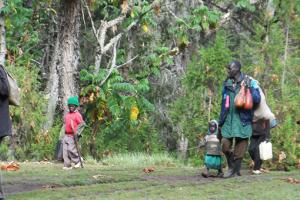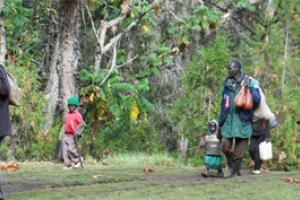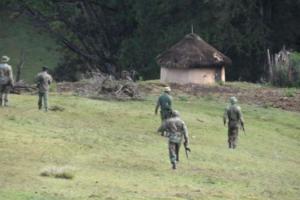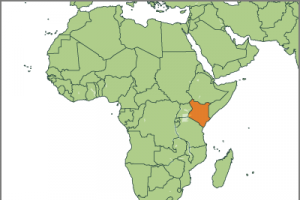Dear friends, your support in needed!
The Sengwer people – an indigenous hunter-gatherer community in the Cherangany hills in Kenya- is being forcibly evicted from its territory.
Many of us have been following closely the story, as recent as last January, but is something that has been taking place since the year 2007. These evictions are directly linked to the World Bank’s funding of the Kenyan government’s REDD+ ‘readiness’ , through the bank’s Natural Resource Management Project (NRMP).
Kenya
25 February 2014
Other information
25 February 2014
February 25, 2014
Download here the full letter in pdf format with the final list of sign-ons
Action alerts
25 February 2014
Dear friends, your support in needed!
The Sengwer people – an indigenous hunter-gatherer community in the Cherangany hills in Kenya- is being forcibly evicted from its territory.
Many of us have been following closely the story, as recent as last January, but is something that has been taking place since the year 2007. These evictions are directly linked to the World Bank’s funding of the Kenyan government’s REDD+ ‘readiness’ , through the bank’s Natural Resource Management Project (NRMP).
Other information
5 February 2014
Some 6000-7000 indigenous people and other communities in Embobut Forest in the Cherangany Hills of the ElgeyoMarakwet County, in Kenya, are threatened with forced eviction.
Other information
14 December 2012
New report: “Recognising Sacred Natural Sites and Territories in Kenya: An Analysis of how the Kenyan Constitution, National and International Laws can Support the Recognition of Sacred Natural Sites and their Community Governance Systems” by Adam Hussein Adam. Published by: Institute for Culture and Ecology (Kenya), African Biodiversity Network & the Gaia Foundation
Other information
5 May 2011
When Kenyan Nobel Peace Laureate Wangari Maathai launched in 1977 the Green Belt Movement – promoting the planting of indigenous trees in forest catchment areas and riparian reserves, private farms with high community access, and public spaces to preserve local biological diversity – she was wary that that the introduction of exotic plant species can have a severe effect on the balance of the ecosystem.
Bulletin articles
30 May 2010
Concerns have been raised in Kenya about the high water consumption of eucalyptus trees, which in 2009 led the country’s Environment Minister, John Michuki, to order the uprooting of eucalyptus trees from wetlands and banned their planting along rivers and watersheds. WRM welcomed this move and provided an overview on this issue in WRM bulletin 147 (October 2009).
Bulletin articles
30 December 2009
The Mau Complex – the largest forest of Kenya – has been the ancestral home of the Ogiek Community. Although extremely important in terms of water catchment, micro-climate regulation and biological diversity, the Mau forest has been regularly cleared for settlement and private agriculture supported by official policies. Destruction of the forest has undermined Ogiek’s rights to livelihood, culture and even a future.
Other information
30 October 2009
Something extremely interesting is currently happening in Kenya. On the one hand, the country’s Environment Minister, John Michuki, has ordered the uprooting of eucalyptus trees from wetlands and banned their planting along rivers and watersheds.
Other information
30 August 2009
The Tana River Delta is one of the most important wetlands in Africa and among the largest and most important freshwater wetland systems of Kenya. It covers an area of 130,000 ha where a mix of savannah, mangrove swamps, forest and beaches provides good grass throughout the dry season. Local Orma and Wardei pastoralists have used the delta for centuries.
Other information
17 October 2007
Earlier this year, in an attempt to discourage the use of plastic bags, the Kenyan government slapped a 120 per cent tax on plastic. While the tax may look like an environmentally friendly decision, it could result in severe impacts on the environment. One of the beneficiaries of the decision will be the partly government-owned Pan African Paper Mills.




